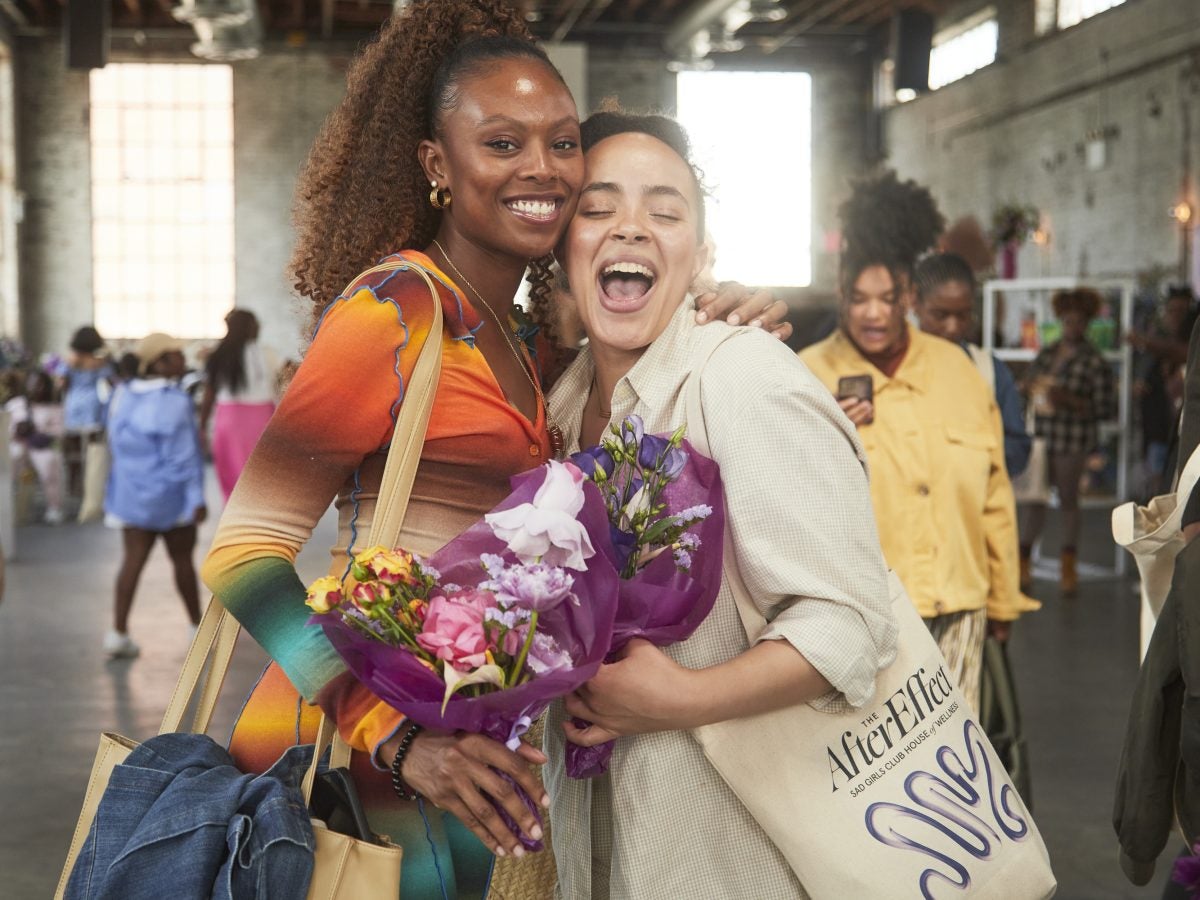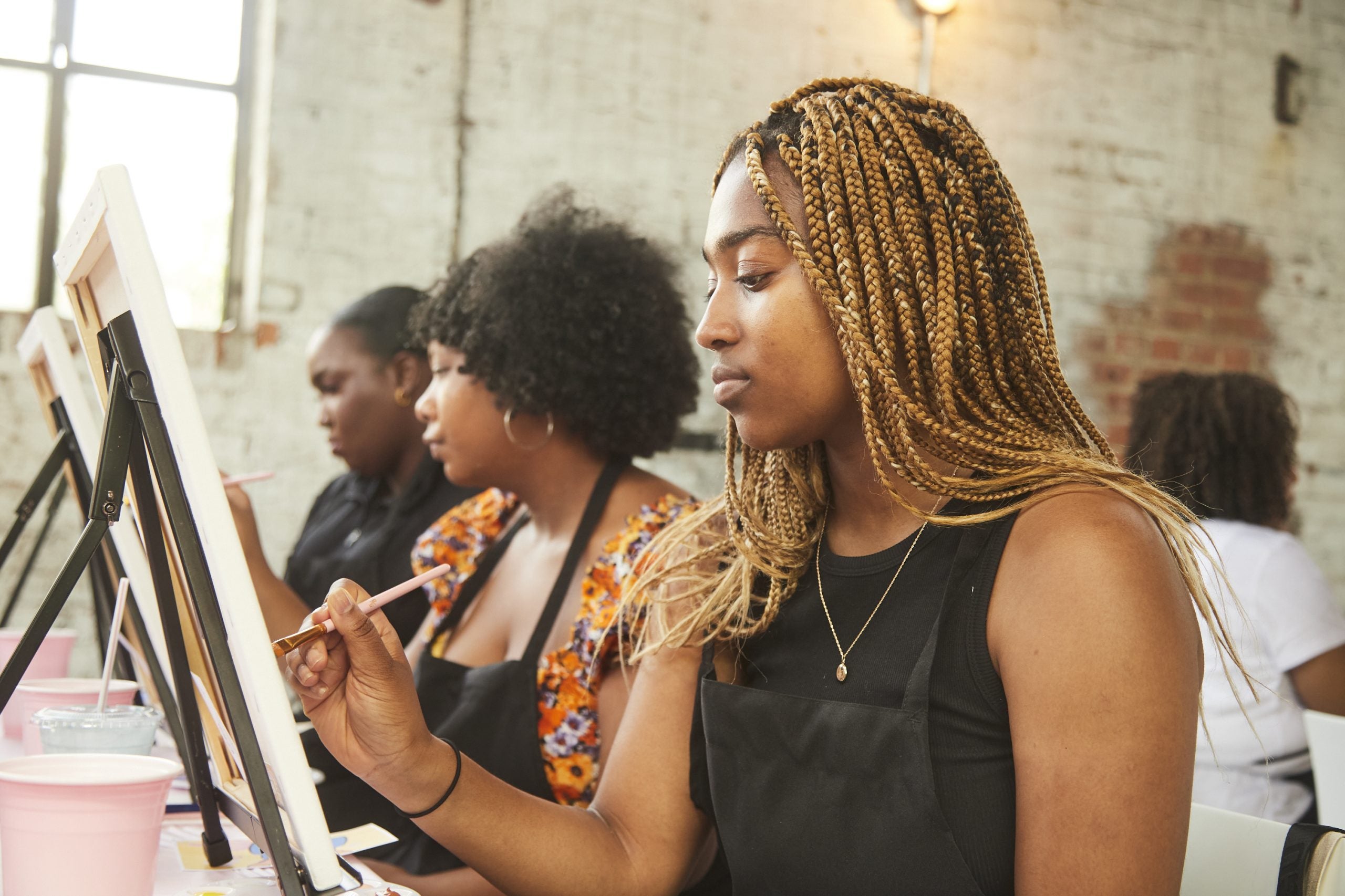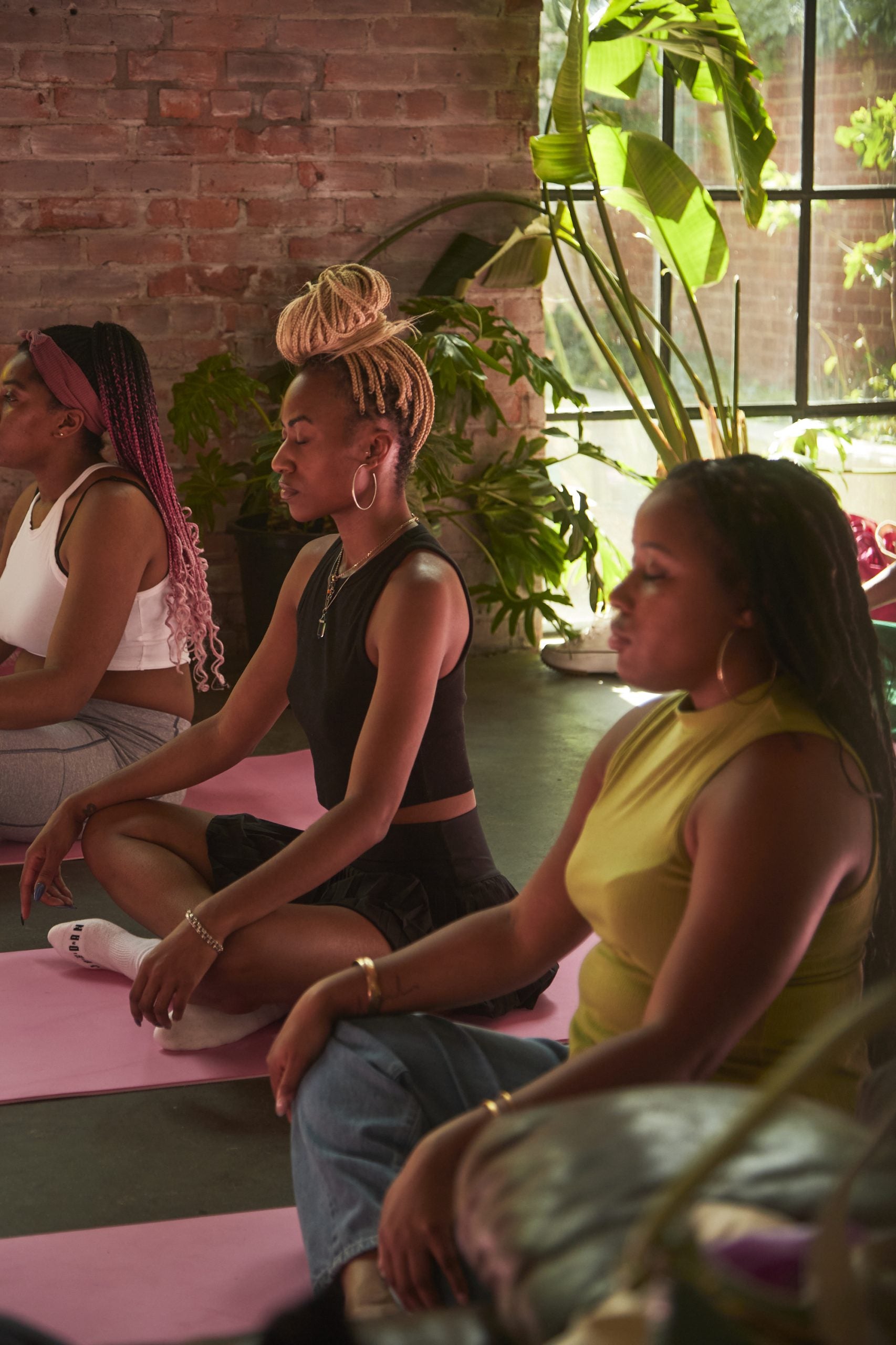
It wasn’t that long ago that that conversations about mental health were few and far between. Resources available to support wellbeing would feel out of reach and/or be considered taboo to discuss amongst family and friends, especially in the Black community. But as the aughts (2000 to 2009) came and went and social media boomed in popularity and in creating connections, wellness and healing have become not only buzzwords but a priority for many. There has been a great increase in services and products for people to improve health, nutrition, mindfulness, appearance, etc. when it comes to wellness, so much so that the industry is projected to hit $7 trillion of the U.S. economy by the year 2025.
Yet, there are still struggles in finding tailored resources for women of color and tools to get their mental health needs met. That is where Elyse Fox steps in. She is a film director, mental health advocate, Rare Beauty board member, and CEO of Sad Girls Club. Fox noticed that even though spaces for mental health were now flourishing, she was seeing a lack of representation for women who looked like her. She decided to change that.
Fox created the Sad Girls Club to destigmatize mental wellness for millennial and Gen Z womxn, girls, and femmes of color. Within SGC, there are three goals in mind: to help increase mental health conversations, to provide services for those who do not have access to therapy or treatments, and to create spaces in real life to build community for young women to offer their shared experiences. While SGC was created to provide safe space for more women and girls, this nonprofit stemmed from Fox’s own experience with her mental health. In 2017, she released a documentary called Conversation With Friends, which depicts her life with depression. From the overwhelming response she received from the film, she found it only fitting to affirm Black women by starting SBC, letting them know that they are not alone in their mental health journey. Since its launch, it has grown to members across five continents and reaches around 40 countries.

In efforts to curate community in person, Fox and her team launched an annual wellness summit called The After Effect: House of Wellness, in Brooklyn, where attendees could come and simply be. That simple opportunity is a very important part of one’s wellness journey. The second After Effect: House of Wellness summit was held Sunday, May 11. Fox shared with ESSENCE the intention behind planning such an event.
“Since I am in the wellness space and I would get invited to different things, as a Black woman, I felt that I was a token in the space. I also do not think there are events curated for my needs specifically,” she says. “So instead of trying to fit into other people’s boxes, I decided to create my own. So my intention for The After Effect was to think about what wellness means and what are the pillars of wellness for this season. For this year, it was rest, recharging, and replenishment. I provided different activations that aligned with those pillars.”
In partnership with Maybelline and their initiative #BraveTogether, this wellness summit was filled with food, drinks, great music, and multiple activations for attendees to choose from. For relaxation, the summit provided massage stations. For recharging there were yoga and paint and sip sessions. Lastly, for a nice pick-me-up, there was a flower bar, a Maybelline makeup master class, and a wellness bodega for free to-go goodies from various brands. Each station was intentionally led by businesses owned by women of color.

Creating spaces such as these helps women understand the importance of prioritizing mental health in their lives.
“I think my parents did not talk about mental health when I was growing up because it was such a hush taboo situation, which is really unfortunate,” says attendee Carine Alexis. “I believe that if we had had honest conversations about mental health earlier on, my early adulthood would have been much easier. As a young adult, I struggled a lot and became the first person in my family to go to therapy. But with summits like this, we can change the way we think about it. I wish more people of color destigmatized how we feel and internally process what’s going on in our lives.”
Fox also wants the summit to showcase that the goal is not perfection when it comes to mental health, but that through the ups and downs, you will see the growth within yourself. Another attendee, Bryanna Young, shared how the summit’s activities were exactly what she needed to see that.
“My favorite activity was the flower bar. I just love flowers and It reminds me of this quote that has always stuck with me. Nothing in nature blooms all year. There is a season for everything. So I think that is how we should approach our wellness journeys,” she says. “In the spring, you are going to have your rainy days and in the fall, you are shedding. But you will bloom again.”
As events like The After Effect continue to be more accessible, the hope is that people, Black women especially, see there is safety in vulnerability.
“My organization has taught me that I am seen and that people feel seen when I see them,” says Fox. “Me showing up for people in those important moments is enough for people to know they have support.”





